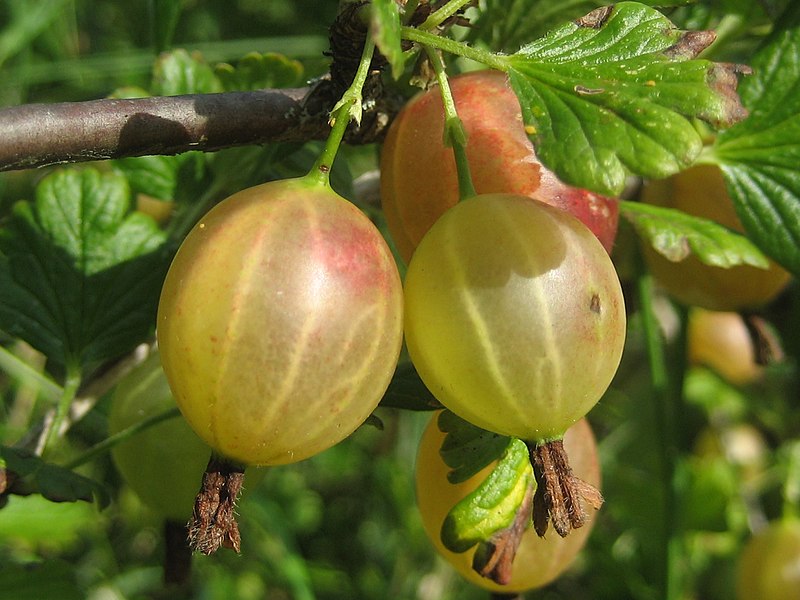Yes, that's right: three's a crowd.
But I didn't know that gooseberry bushes were actually illegal in the USA for about fifty years from 1911 (they supported a pathogen which affected timber, apparently, though now trees have been bred to be resistant to the disease) and gooseberries still aren't all that commonly eaten.

photo by Pavel Leman
To be honest, they're not usually all that nice unless they're mixed with plenty of sugar. Cream helps, too.
But why are they called gooseberries, and what's that got to do with upsetting lovers?
Well, no one knows what they've got to do with geese. There are a whole load of theories, but the most likely thing seems to be that they're called after the birds and, um, berries, though what geese have to do with it no one's got a clue.
As for the poor lovers, the word started off in the 1800s describing someone who acted as a chaperone. The idea seems to have been that this person would hang around in order to keep things respectable, but that they'd go off to pick gooseberries from the hedgerows so as to allow the lovers time to be completely absorbed with each other. (Another, similar, term was picking daisies.)
Those days of scrupulous manners have long since past, of course, and so now such a person is just a nuisance.
Thing Not To Be Today: a gooseberry. Gooseberries are green, sharp, and their bushes are prickly, which are also things not to be. The French call them groseille à maquereau, mackerel berries, because a gooseberry sauce is good to eat with mackerel. Long ago if you called someone a gooseberry you were calling him a fool, because of the cream and gooseberry dessert called a gooseberry fool.
The word goose was gōs in Old English, and the word berry was berie.
No comments:
Post a Comment
All comments are very welcome, but please make them suitable for The Word Den's family audience.